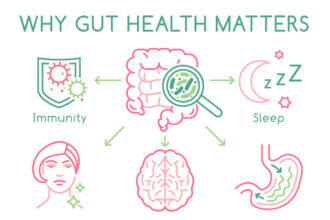The challenge of underdiagnosing dementia, particularly among Black and Hispanic populations, remains a significant issue in healthcare. A groundbreaking study recently published in Nature Medicine introduces a straightforward, five-minute test that, combined with tailored recommendations integrated into electronic medical records, has led to a threefold increase in the diagnosis and management of dementia in a primary care setting compared to a control group. This new method, known as the “5-Cog paradigm,” was developed by experts at the Albert Einstein College of Medicine and the Montefiore Health System. It has markedly improved the identification and initial treatment of mild cognitive impairment and dementia.
Joe Verghese, M.B.B.S., the study’s senior author and the creator of the 5-Cog paradigm, highlighted the persistent issue of undiagnosed dementia within primary care environments, noting that even when it is identified, it often remains untreated. He explained that traditional methods for detecting cognitive impairment are time-consuming and costly and generally require a neurologist’s involvement. Moreover, since existing assessments were primarily designed for white populations, they fail to accommodate cultural nuances. The 5-Cog paradigm was designed to overcome these limitations, offering a culturally sensitive, efficient, and cost-effective diagnostic tool.
Dr Verghese, a professor and director of the division of cognitive and motor ageing at the Saul R. Korey Department of Neurology and several other prestigious positions at Einstein and Montefiore, alongside Emmeline Ayers, M.P.H., who is the last author of the paper and a principal staff scientist in the department, have significantly contributed to this advancement. The 5-Cog assessment includes a picture-based memory impairment screening, a symbol-matching task, and verification of cognitive complaints by the patient, making it a tool that can be effectively administered by minimally trained non-physician personnel. These staff members can then quickly relay critical information to primary care providers.
The research encompassed 1,201 older adults from socioeconomically disadvantaged neighbourhoods in the Bronx, with a median age of 72.8, most of whom were Black or Hispanic/Latino. Participants were randomly assigned to receive the 5-Cog assessment or placed in a control group without testing. Results from a 90-day follow-up showed that individuals assessed with the 5-Cog paradigm were three times more likely to experience enhanced dementia care actions. These included receiving new diagnoses of mild cognitive impairment or dementia, referrals to specialists, and appropriate medication.
Dr. Verghese expressed optimism that the study’s findings could lead to significant changes in primary care practices, enhancing the diagnosis and treatment of older individuals with mild cognitive impairment or dementia. This advancement promises to improve the quality of life for many patients and reduce the long-term healthcare burdens associated with untreated mental disorders.
More information: Joe Verghese et al, Non-literacy biased, culturally fair cognitive detection tool in primary care patients with cognitive concerns: a randomized controlled trial, Nature Medicine. DOI: 10.1038/s41591-024-03012-8
Journal information: Nature Medicine Provided by Albert Einstein College of Medicine








